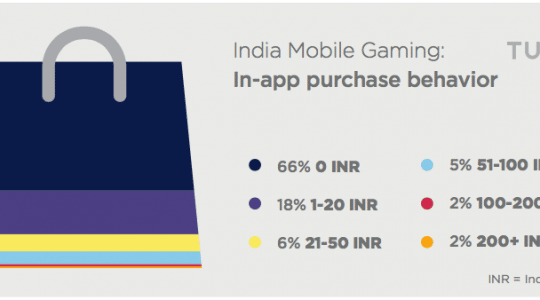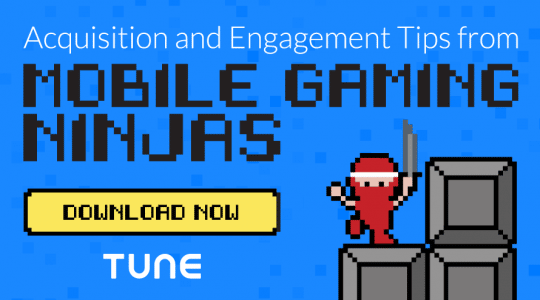If you’ve been following tech news for the past couple of weeks, you’ve undoubtably heard about AppGratis getting pulled from the App Store for violating some of the terms in the App Store Review Guidelines. Since then the outcry from the community has been significant, and AppGratis is asking their users to sign an online petition in an attempt to get their app back in the App Store. But who was in the right, Apple or AppGratis?
Two Sides To Every Story
According to AppGratis’ CEO Simon Dawalt, the announcement from Apple that their app was pulled from the App Store came as a huge surprise. Upon hearing the news after stepping off of an airplane, Dawalt says he “almost fainted.” By all accounts AppGratis seemed to be thriving. They closed a $13.5 million round of funding back in January, and had over 7 million iOS users. As of April 5th, when Apple pulled them from the App Store, their user count had surpassed 12 million. They had gotten approval from Apple on the iPad version of their app < b >ONE WEEK< /b> prior to getting pulled. As far as they knew they were living the dream and growing their company into a huge success. Dawalt wrote a compelling and lengthy blog post in response to Apple’s decision, and at the time of writing this blog their online petition had over 960,000 supporters.
So why did Apple pull the plug? Officially speaking, there are two clauses in the App Store Review Guidelines in particular that AppGratis is in violation of:
2.25 – Apps that display Apps other than your own for purchase or promotion in a manner similar or confusing with the App Store will be rejected.
5.6 – Apps cannot use Push Notifications to send advertising, promotions, or direct marketing of any kind.
Aside from quoting the above clauses, Apple hasn’t had much to say, officially speaking, about their decision regarding AppGratis. There are many folks out there questioning why AppGratis was target when so many of their competitors are still available in the App Store; perhaps Apple’s decision was singularly targeted at one company who was experiencing greater success from the rest? Though according to a post from AllThingsD, “AppGratis’ ouster was a first step in a broader enforcement action generally targeted at app-discovery apps that run afoul of clauses 2.25 and 5.6. Apple’s removal of AppGratis, then, wasn’t some mid-level misstep or furtive policy change that they company prefers not to explain. It was a straight-ahead compliance action.”
What Does It Really Mean?
We have our opinions here at MobileDevHQ about who is right and who is wrong, about how it was handled and how it should have been handled, but at the end of the day it honestly doesn’t matter. Whether it be AppGratis and their pay-to-promote model driving downloads in the App Store or another company finding their own way to beat the elusive App Store algorithms, what it all comes back to is the fact that < b >word of mouth and social discovery are the key to getting your app discovered< /b >. The global research and advisory firm Forrester recently released a report exploring best practices for developers who want to get their apps noticed. The report itself will run you a solid $500, but TechCrunch had a great write-up last week about it. The top three ways that apps are discovered (as discovered in Europe, a population that sees trends very similar to the US) are through:
- “General browsing in an app store” which translates to performing searches in an app store for keywords or app titles,
- “Speaking with friends or family” which shouldn’t require an explanation, and
- Browsing ‘top rated’ or ‘most popular’ apps lists in an app store”
Here’s the full chart (courtesy of Forrester via TechCrunch):

Of all the 14 different outlets listed for getting your app discovered, you have to scroll down to #8 before you’ll see a non-organic discovery channel. This isn’t too surprising for those of us in the industry, but it is still huge to see it laid out so clearly like this. No matter how successful AppGratis is (was?), no matter whether Apple does away with them and all similar apps or if they change their mind and allow AppGratis back into the fold, at the end of the day the things that determine the success of your app are discoverability, customer retention, and overall quality/usefulness (**quick disclaimer, I know it takes more than these three things to have a successful app, but for simplicity’s sake and to stay on topic, we’re just sticking with these three**). And taking away companies like AppGratis, while initially a loss for developers, is ultimately a win for Apple and for consumers. Dan Porter, former CEO of OMGPOP, agrees with this line of thinking, and states in a recent blog post that “in the end, the App Store really is a democracy, and no amount of cheating ever truly wins. What I mean by that is that there is a hidden meritocracy in the App Store charts. By hook or crook, you might find a new angle to drive your app to the top, but at the end of the day, if consumers don’t like it, your app is going to fail.” I love this quote from him, and wholeheartedly agree. At the end of the day if you truly want to be successful, you have to work your ass off, play by the rules, and build an incredible app. Cultivate your keywords and app description; work on having awesome screenshots; collect as many reviews as you can; make sure your app icon is not only aesthetically pleasing but also reflective of what your app does. These aren’t things that you’ll get done overnight, and more often than not isn’t something you do on your first go-round unless you seek outside help. Getting discovered in the App Store and Google Play is hard, and without some advantage or help, users may never find your app even if it is the most amazing thing to hit an iOS device since the first iPhone was released.
Let Us Help!
Here at MobileDevHQ, we have the team and the tools to help you get a step up in the App Store and Google Play and make sure you have the foundation in place that you need to get discovered. Using us isn’t going to guarantee immediate success in the way that AppGratis did, but we can guarantee that if you take the right steps and utilize all the help we have to offer, you will see improvements and you will see your success grow. But don’t just stop with us; continually improve your app, educate yourself, get feedback from your users, your friends, and your networks so you can keep improving your app. Because at the end of the day if you have the passion to succeed, you will.
Author
Becky is the Senior Content Marketing Manager at TUNE. Before TUNE, she handled content strategy and marketing communications at several tech startups in the Bay Area. Becky received her bachelor's degree in English from Wake Forest University. After a decade in San Francisco and Seattle, she has returned home to Charleston, SC, where you can find her strolling through Hampton Park with her pup and enjoying the simple things between adventures with friends and family.




Leave a Reply
You must be logged in to post a comment.